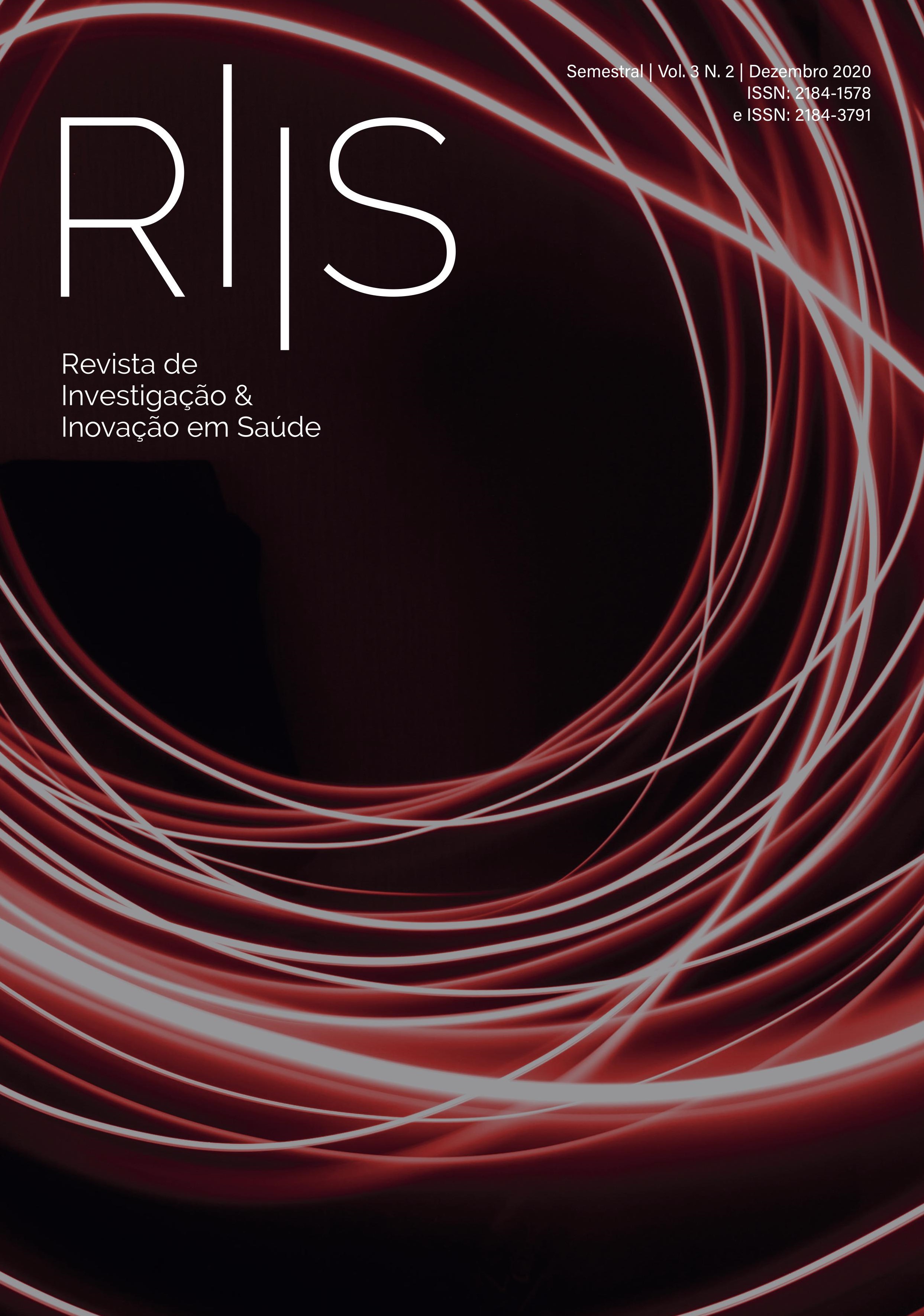Emotional intelligence of nurses in the approach to critical patients: qualitative study
DOI:
https://doi.org/10.37914/riis.v3i2.97Keywords:
emotional intelligence; nurses; critical careAbstract
Background: emotional intelligence (EI) is the individual's ability to identify emotions, manage and understand is own emotions and self-motivate in awkward and conflict situations. It reflects the professional's attitudes and behaviors in different contexts, impacting the quality of their performance. Objectives: to describe the IE of expert nurses in the critical care area and to identify the behavioral strategies used by nurses to approach the critically ill patient. Methodology: qualitative, descriptive and exploratory study. Data collection was performed using the focus group with 8 expert nurses in the critical care area. Results: there are 6 categories related to nurses IE in the area of critical patient care: professionalism, interpersonal relations, service organization, emotions sharing, work management and emotional self-control. Conclusion: the strategies identified were sharing emotions among peers, managing time to discuss existing situations during working hours, capacity of emotional self-control, adaptability to the environment and the way to establish relationships with the client.
References
Bardin, L. (2015). Análise de Conteúdo. Lisboa: Edições 70.
Barros, J. O. (2009). A contrução de projetos terapêuticos no campo da saúde mental: apontamentos acerca das novas tecnologias de cuidado. São Paulo: Universidade de São Paulo.
Beck, G. (2009). Conflito nas organizações. São Paulo: Centro Universitário Feevale.
Benzo, R. P., Kirsch, J. L., Dulohery, M. M., & Abascal-Bolado, B. (2016). Emotional Intelligence: A Novel Outcome Associated with Wellbeing and Self-Management in Chronic Obstructive Pulmonary Disease. Annals of the American Thoracic Society, 13(1), 10–16. https://doi.org/10.1513/AnnalsATS.201508-490OC
Cordeiro, A. (2009). Responsabilidade profissional: recursos humanos e qualidade dos cuidados de enfermagem. Dissertação de Mestrado: Faculdade de Medicina da Universidade de Lisboa.
Costa, A. C., & Faria, L. (2009). A inteligência emocional no contexto de enfermagem: estudo exploratório com o questionário de competência emocional (QCE). Braga: Universidade do Minho.
Chinn, P. & Kramer, M. (2018). Integrated Theory and Knowledge Development in Nursing. 8th ed. St Louis, MO: Elsevier Mosby.
Crispim, I. (2015). Estilos vinculação, regulação emocional e partilha social das emoções em estudantes universitários. Universidade Lusófona de Humanidades e Tecnologias.
Diogo, P. (2017). Relação Terapêutica e Emoções: Envolvimento versus Distanciamento Emocional dos Enfermeiros. Pensar Enfermagem.
Encarnaçao, R., Soares, E., & Carvalho, A. (2018). Inteligência Emocional: Fatores Influenciadores e impacto nos enfermeiros em cuidados intensivos. Revista Rene, Vol. 19,33-58
Goleman, D. (2018). Trabalhar com Inteligência Emocional. Círculo de Leitores.
Goleman, D. (2019). Inteligência Emocional. Lisboa: Temas e debates.
International Council of Nurses. (2016). Classificação internacional para a prática de enfermagem: CIPE versão 2015. Lisboa, Portugal: Lusodidacta.
Lewis S. L. (2019). Emotional Intelligence in Neonatal Intensive Care Unit Nurses: Decreasing Moral Distress in End-of-Life Care and Laying a Foundation for Improved Outcomes: An Integrative Review. Journal of hospice and palliative nursing: JHPN: the official journal of the Hospice and Palliative Nurses Association, 21(4), 250–256. https://doi.org/10.1097/NJH.0000000000000561
Mayer, J., Salovey, P., & Caruso, D. (2004). Emotional Inteligence: Theroy, findings and implications. Psychological Inquiry, 15(3), 197-215
Nagel, Y., Towell, A., Nel, E., & Foxall, F. (2016). The emotional intelligence of registered nurses commencing critical care nursing. Curationis, 39(1), e1–e7. https://doi.org/10.4102/curationis.v39i1.1606
International Council of Nurses. (2015). CIPE - Versão 2015: classificação internacional para a prática da enfermagem. Lisboa: Ordem dos Enfermeiros.
Oliveira, K. S. (2019). Inteligência Emocional dos Enfermeiros: contributos da supervisão clínica. Tese de Mestrado: Escola Superior de Saúde do Porto.
Rimé, B. (2009). Emotion elicits the social sharing of emotion: Theory and empirical review. Emotion Review, 1(1), 60-85
Santos, M., & Almeida, A. (2016). Profissionais de Saúde: principais riscos e fatores de risco, eventuais doenças profissionais e medidas de proteção recomendadas. Revista Portuguesa de Saúde Ocupacional, 2, 28-52. DOI:10.31252/RPSO.26.10.2016
Schein, E. (2009). Cultura organizacional e Liderança. São Paulo: Atlas.
Downloads
Published
How to Cite
Issue
Section
License
Copyright (c) 2020 Journal of Health Research & Innovation

This work is licensed under a Creative Commons Attribution 4.0 International License.















